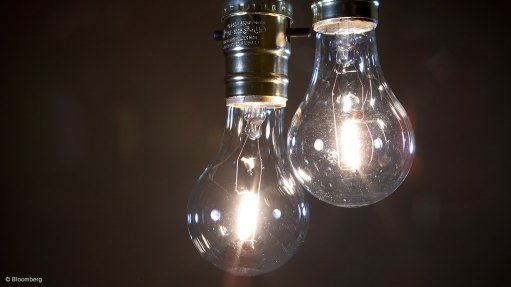
Photo by: Bloomberg
Econometrix MD and senior economist Rob Jeffrey said on Wednesday that the “fundamental weaknesses” of renewable-energy sources currently precluded these projects from being able to provide affordable, reliable power to the national grid.
Despite emphasising that all energy sources had costs and benefits, and noting that “no [energy source] was better than the other”, the economist told delegates at the Southern African Energy Efficiency Convention, in Johannesburg, that, if carbon costs were excluded, wind, nuclear and solar energy generation sources were considerably more expensive than coal-fired energy sources.
Moreover, a major growth in renewables would drive up energy prices, which, in turn, would stifle the local manufacturing base and reduce the country’s overall competitiveness.
Wind and solar power generation projects also depended largely on subsidies, required almost equivalent traditional power back-up and power was often expensive to store.
“The only [viable] sources of baseload power for this country in the next 150 years are coal, nuclear and shale gas…renewable energy is just too expensive and too unreliable.
“I know of no technological advancement that can make the sun shine or the wind blow for 24 hours a day…the load factors of wind and solar energy are simply too low. The load factor of wind energy, for example, is between 20% and 30%,” he asserted.
Jeffrey underlined, however, that renewable energy did have selective uses and advantages, largely in the domestic environment.
“I do think, for example, that it should be compulsory for every household to have a solar panel on their roof,” he said.
Jeffrey, meanwhile, advocated for further exploration of South Africa’s shale gas potential, arguing that South Africa first needed to determine the extent of Karoo-based shale gas, before it could be exploited under appropriate legislation and by reputable companies.
“Shale gas has its uses and I am aware of the arguments against it, but let’s see if it’s there,” he said.
Jeffrey further contended that South Africa’s long-term energy objective must be the security of energy supply at competitive costs.
This would require a multilevel approach through which efficiency programmes at industrial and domestic levels were encouraged and during which energy sources with “major competitive advantages”, such as shale gas, were developed as a matter of urgency.
“We need to explore shale gas and gas as a matter of urgency and introduce gas-fired power stations that are initially liquified natural gas-based with a view to developing shale and other gas deposits in future.
“In addition, [we need to] build three or more gas-fired power stations and at least two major coal-fired power stations based on cleaner technology, proceeding with possibly one nuclear power station if [the] costs of other renewables are not reduced,” he said.
This theoretical future energy mix would see the limited and selected use of renewables, but would include solar power focused primarily on domestic use, as well as limited biomass, pumped-storage, hydropower and wind energy projects.